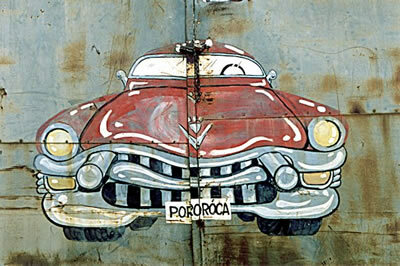Importance of the attacks in Oslo and the island of Utoya in 2011
Miscellanea / / August 08, 2023

Specialist journalist and researcher
In the face of the terrorist threat, there are no longer places that we can consider safe in the world; a country as quiet and secluded as New Zealand was the target (in March 2019) of a terrible far-right terrorist attack on two mosques. Who would have thought just a couple of decades ago that something like this could happen.
The same applies to a traditionally peaceful country like Norway, which in 2011 saw its peace disturbed by a heinous attack.
The attacks that occurred in Oslo and the island of Utoya on July 22, 2011 were violent actions carried out by a far-right “lone wolf”.
Anders Behring Breivik, which is the name of the person who perpetrated the massacres, is the result of a marriage that she divorced when he was one year old, and whose mother - who obtained custody of her - mistreated him.
It is likely that this stage of his life explains his militant anti-feminism, as well as a character openly supremacist and defiant, as a self-protection mechanism against the abuses committed by his mother.
Already at a very young age, some psychologists who examined him saw in him hints of mental instability that could lead to dangerous behavior.
Paradoxically, during his puberty he showed a deep interest in the urban culture of the hip hop, which is remarkably open when it comes to issues such as the orientation sexuality or race, which would later be rejected by Breivik.
His fellow students describe him as a very intelligent and strong person, who even took care of those who were bullied.
At 21, he started working in a company - whose name is unknown to the general public - in customer service by telephone. His behavior is described as kind towards those people he served.
What happened to the friendly Breivik to become the murderous Breivik?
His exact path is unknown, although it is not unreasonable to think that the future terrorist, already in the making, took a hidden path in view of the rest of the world, becoming radicalized from beginning of the 90s through Internet forums.
His ego could have played a role, since Breivik would not have wanted to face his nascent worldview with other different and diametrically opposed views that could have made him doubt his convictions.
At the beginning of the new millennium he could already have in mind the carrying out of the attacks, as he would later manifest during the trial.
He also affirmed that already at that time he promoted his own business with said objective in mind, which allowed me to save enough to buy weapons and the materials necessary for the manufacture of explosives.
He obtained weapons legally in Norway, a pistol and a rifle, presenting a shooting and hunting club licenses respectively.
A farm owned by him allowed him to buy the necessary material for the manufacture of explosives.
On July 22, 2011, a fertilizer bomb exploded outside the Swedish Prime Minister's office in Oslo, killing eight people.
This was just the beginning; Breivik's Machiavellian mind had foreseen an attack in two phases, taking advantage of the fact that the security and assistance forces would be busy with the bomb in the center of the capital.
Just a few hours later, posing as a police officer, he embarked an armed ferry that took him to the island of Utøya, where the Labor Party youth camp was taking place that day Norwegian.
Using the excuse of reporting on precisely the explosion, and maintaining his role as law enforcement officer, Breivik gathered the young people around him. It was a death trap.
After opening fire, the terrorist left a trail of sixty-nine more corpses, to add to the eight people who had already lost their lives in the Oslo explosion.
Some of the victims were as young as 14 years old. Breivik was arrested an hour and a half after he started shooting.
After his arrest, a manifesto that he had published on the Internet was released, and in which he echoed theses related to racism and white supremacism.
Among these, for example, that Western society and way of life are in danger because of immigration and, specifically, immigration from Muslim countries.
He also blamed it on the political parties leftists, like the Norwegian Labor who was the target of his attack.
He also apportioned blame to feminism, which he claimed destroyed the Western way of life.
Breivik was sentenced to 21 years in prison in the summer of 2011.
During the trial, which had a profound impact not only in Norway, but throughout the world, he was defiant in at all times, performing a strange ritual greeting at the beginning of each session and not acknowledging the authority of the court.
In hindsight, and also to emphasize his refusal to recognize the authority of the court, he has refused to appeal his sentence. And already in prison, he has declared himself a National Socialist and a follower of the contemporary reinterpretation of the religion classic norse.
write a comment
Contribute with your comment to add value, correct or debate the topic.Privacy: a) your data will not be shared with anyone; b) your email will not be published; c) to avoid misuse, all messages are moderated.

